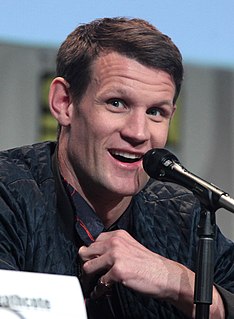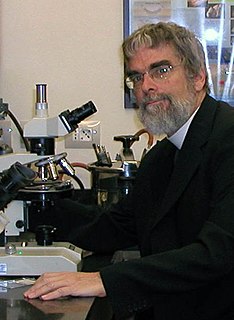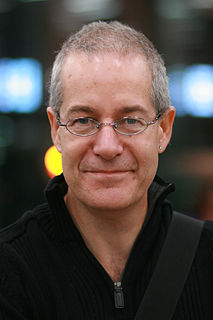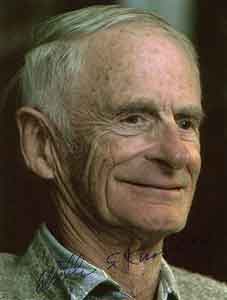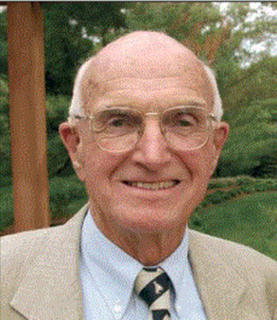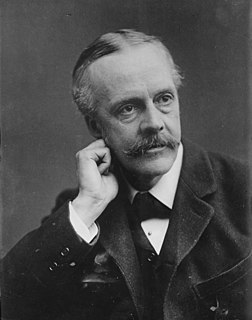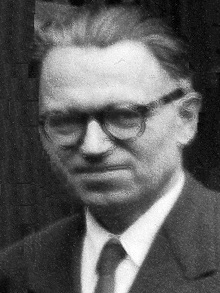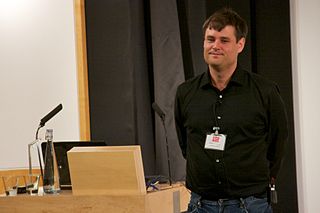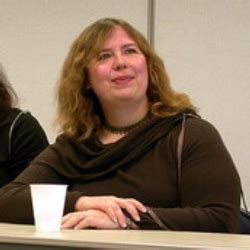Top 1200 Good Science Quotes & Sayings - Page 4
Explore popular Good Science quotes.
Last updated on November 20, 2024.
The Genealogical Science is a wonderful account of how old-fashioned race science has come to be re-defined by resort to the most recent developments in genetics. But this book is not simply another story of the ideological uses to which science may be put. Nadia Abu El-Haj has provided the reader with a very detailed analysis of the historical entanglement between science and politics. Her study should be required reading for anyone interested in the sociology of science-and also for those dealing with Middle Eastern nationalisms. This is a work of outstanding value for scholarship.
Religion needs science to keep it away from superstition and keep it close to reality, to protect it from creationism, which at the end of the day is a kind of paganism - it's turning God into a nature god. And science needs religion in order to have a conscience, to know that, just because something is possible, it may not be a good thing to do.
The values of science and the values of democracy are concordant, in many cases indistinguishable. Science and democracy began - in their civilized incarnations - in the same time and place, Greece in the seventh and sixth centuries B.C. . . . Science thrives on, indeed requires, the free exchange of ideas; its values are antithetical to secrecy. Science holds to no special vantage points or privileged positions. Both science and democracy encourage unconventional opinions and vigorous debate. Both demand adequate reason, coherent argument, rigorous standards of evidence and honesty.
The progress of science is tremendously disorderly, and the motivations that lead to this progress are tremendously varied, and the reasons why scientists go into science, the personal motivations, are tremendously varied. I have said ... that science is a haven for freaks, that people go into science because they are misfits, and that it is a sheltered place where they can spin their own yarn and have recognition, be tolerated and happy, and have approval for it.
We can reorient science - for example, a kind of medicine much more directed toward the enormous number of women's health problems which are neglected now. But the original givens of this science are the same for men and for women. Women simply have to steal the instrument; they don't have to break it, or try, a priori, to make of it something totally different. Steal it and use it for their own good.
Given the power and influence that science increasingly has in our daily lives, it is important that we as citizens of an open and democratic society learn to separate good science from bunk. This is not just a matter of intellectual curiosity, as it affects where large portions of our tax money go, and in some cases even whether people’s lives are lost as a result of nonsense.
Is the Church inimical to science? Growing up as a Catholic and a scientist - I don't see it. One truth is revealed truth, the other is scientific truth. If you really believe that creation is good, there can be no harm in studying science. The more we learn about creation - the way it emerged - it just adds to the glory of God. Personally, I've never seen a conflict.
Being a philosophical naturalist does not mean that one thinks that science can provide all of the answers. That is scientism and that is wrong. I don't think a billion buckets of science could speak to the problems raised by the Tea Party. Being a philosophical naturalist does not mean that one thinks that the only truths are those of science. I think the claim just made in the last sentence is true but I don't think it is a claim of science. It means that you use science where you can and you respect and try to emulate its standards.
Science fiction, as I mentioned before, writes about what is neither impossible nor possible; the fact is that, when the question of possibility comes up in science fiction, the author can only reply that nobody knows. We haven't been there yet. We haven't discovered that yet. Science fiction hasn't happened.
Science is intimately integrated with the whole social structure and cultural tradition. They mutually support one other-only in certain types of society can science flourish, and conversely without a continuous and healthy development and application of science such a society cannot function properly.
A great swindle of our time is the assumption that science has made religion obsolete. All science has damaged is the story of Adam and Eve and the story of Jonah and the Whale. Everything else holds up pretty well, particularly lessons about fairness and gentleness. People who find those lessons irrelevant in the twentieth century are simply using science as an excuse for greed and harshness. Science has nothing to do with it, friends.
It turned out I was pretty good in science. But again, because of the small budget, in science class we couldn't afford to do experiments in order to prove theories. We just believed everything. Actually, I think that class was called Religion. Religion class was always an easy class. All you had to do was suspend the logic and reasoning you were being taught in all the other classes.
This example illustrates the differences in the effects which may be produced by research in pure or applied science. A research on the lines of applied science would doubtless have led to improvement and development of the older methods - the research in pure science has given us an entirely new and much more powerful method. In fact, research in applied science leads to reforms, research in pure science leads to revolutions, and revolutions, whether political or industrial, are exceedingly profitable things if you are on the winning side.
Economics is a theoretical science and as such abstains from any judgement of value. It is not its task to tell people what ends they should aim at. It is a science of the means to be applied for attainment of ends chosen, not, to be sure, a science of the choosing of ends. Ultimate decisions, the valuations and the choosing of ends, are beyond the scope of any science. Science never tells a man how he should act; it merely shows how a man must act if he wants to attain definite ends.
The truth is that Trout, like Vonnegut and Ray Bradbury and many others, writes parables. These are set in frames which have become called, for no good reason, science fiction. A better generic term would be 'future fairy tales'. And even this is objectionable, since many science fiction stories take place in the present or the past, far and near.
Just to the extent that the Bible was appealed to in matters of science, science was retarded; and just to the extent that science has been appealed to in matters of religion, religion has advanced - so that now the object of intelligent religionists is to adopt a creed that will bear the test and criticism of science.
What I like about sceptics is that in good science you need critics that make you think: 'Crumbs, have I made a mistake here?' If you don't have that continuously, you really are up the creek. The good sceptics have done a good service, but some of the mad ones I think have not done anyone any favours.
The term "informatics" was first defined by Saul Gorn of University of Pennsylvania in 1983 (Gorn, 1983) as computer science plus information science used in conjunction with the name of a discipline such as business administration or biology. It denotes an application of computer science and information science to the management and processing of data, information and knowledge in the named discipline.

